“Our students never cease to amaze me” – what it’s like working in a Catholic special needs school
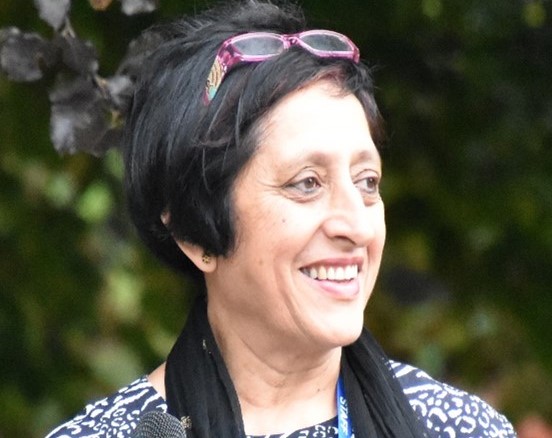 St Rose’s is a non-maintained, all through school in Stroud, Clifton Diocese, for students with special educational needs and disabilities. St Martin’s, a specialist college for those aged 19-25, is also based within the school grounds.
St Rose’s is a non-maintained, all through school in Stroud, Clifton Diocese, for students with special educational needs and disabilities. St Martin’s, a specialist college for those aged 19-25, is also based within the school grounds.
Over a hundred years ago a child with special needs, who could not be accommodated in a parish school, was left with the Dominican Sisters of St Rose’s Convent in Stroud. This led the Sisters to found St Rose’s School in 1912 – one of the very first special schools in the country.
In 1973 Mother Teresa, later canonised as Saint Teresa of Calcutta, heard about the children’s efforts to raise money for her work by holding a sponsored silence and she visited the school later that year. Today, students continue to raise money for charities.
St Rose’s is part of the parish of The Church of the Immaculate Conception, and has an accessible chapel on site. It was rated as ‘Outstanding’ in its latest Catholic Schools Inspectorate report. The school community is active in participating in Mass and liturgical celebrations, even though many are not Catholics, but understand the school’s heritage and value of its mission of the word of Christ and his teachings.
Long service
Sheila Talwar (pictured) is Principal of St Rose’s and St Martin’s and remembers volunteering to support St Rose’s students who travelled to a local school in Gloucester to use the swimming pool for hydrotherapy.
She said: “My first contact was while volunteering in the sixth form. Visiting St Rose’s as a school student I knew that I always wanted to work with children with disabilities.”
In January 1977 the forward-thinking Sisters took on Sheila as their first occupational therapy student, therapists being unusual at the time for special schools. After passing her exams Sheila returned as maternity cover, then on a more permanent basis as part of a job share.
As well as meeting students’ educational potential, enabling independence is a key part of the curriculum, teaching life skills such as nutrition, money management and time management, while wheelchair-accessible transport provides opportunities for trips to go shopping, ice skating, and more. Other activities students enjoy include horse riding, yoga, and swimming in the St Rose’s hydrotherapy pool.
In the past students enjoyed trips to Stoke Mandeville Stadium, birthplace of the Paralympic Games, to watch and participate in athletics events. Some have gone on to take part in national and international sporting competitions, including winning the London Mini Marathon wheelchair race.
Over the years St Rose’s has also taken students to pop concerts such as Meat Loaf, Madness, Janet Jackson, Michael Jackson and Musical Youth.
“In those days you could go backstage and meet musicians,” Sheila said, “we ended up playing piggy-back races with members of Musical Youth. We even met Stevie Wonder! More recently we have taken students to the WOMAD music festival and Cheltenham Jazz Festival which was a truly sensory experience.”
The Sisters soon asked Sheila to head the sixth form, which involved being responsible for a mix of therapy as well as education, and 15 years later Sheila took on the role of Head of Care.
St Martin’s
After sixth form, students used to leave St Rose’s and go on to other specialist, secular, colleges elsewhere. This led to the establishment just over a decade ago of St Martin’s, a residential college built on the school grounds which includes a work-related learning and careers programme, work experience placements, and mentoring.
Sheila said: “The thing for me is how important it is our students have the opportunities that mainstream children have. In the past, our young people have been able to go to university and have careers, such as qualifying as a social worker, or working for the BBC, and one student became a member of the Para Orchestra. These days our students have more complex needs, and our focus is on preparing them for their adult lives with as much independence as possible.”
Over the years she has seen many changes, such as a move away from students sleeping in dormitories and spending entire terms staying on site. Today, most residential students go home every fortnight, both to spend time with their families and to stay on the local authority’s radar for support services.
Changing needs
Students also have physical and health needs that are more challenging than in the past. Advances in medical technology have improved survival rates of preterm babies and children after severe trauma or illness.
Sheila said: “Our aim is to help each of our students recognise their unique worth in the eyes of God. The value our students bring to the world and the part they play in society cannot be measured, they really are quite amazing in what they achieve.
“Some students might have been to other schools where they don’t have speech and language technology, then come here and learn to communicate, to read and take a more active role in their lives, it’s just awe-inspiring.
“Our students never cease to amaze me. From learning to walk, to learning to use a communication aid, to running a tuck shop or learning phonics, the students are endlessly determined and creative in the ways they learn and develop. What our students do on a daily basis is phenomenal.”
Building the future
A fundraising campaign launched in 2019 by Eddie ‘The Eagle’ Edwards continued throughout all the restrictions of the pandemic, eventually raising £1.5million and culminating in the opening in May 2022 of Quentin House, a new residential block.
Students benefit from bespoke bedrooms and enjoy preparing food in an adapted kitchen. Short stays for day pupils additionally help to develop their independence.
The next stage of the campaign, titled St Rose’s 2030, is to update older buildings, and expand St Martin’s, with £250,000 pledged so far towards a target of £1.8million.
Find out more about St Rose’s and St Martin’s, and to make a donation please contact This email address is being protected from spambots. You need JavaScript enabled to view it.
New guidance for schools to support children with a parent in prison
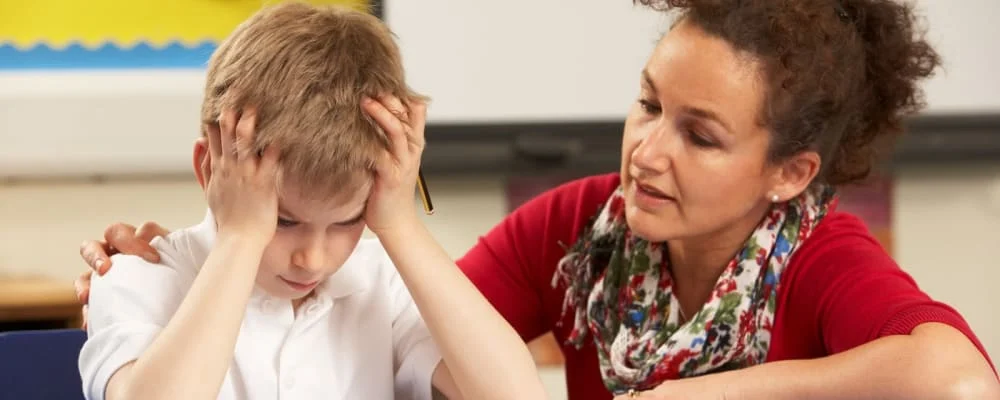 Children in England with a parent in prison have access to more support with a new, dedicated resource pack for schools and educational settings.
Children in England with a parent in prison have access to more support with a new, dedicated resource pack for schools and educational settings.
The new toolkit provides advice and support for teachers who have children in their classes with a parent in prison. It seeks to foster understanding about the issue in schools and to ensure that young people affected by imprisonment know that there is help available for them. The toolkit has been produced by national Catholic charity Pact, the Prison Advice and Care Trust.
With the prison population across England & Wales near a record high, so too is the number of children being affected by the imprisonment of a parent. It’s estimated that around 100,000 children have a father or mother behind bars right now and research estimates that around 1 in 15 children (7%) will experience a parent’s imprisonment at some point during their time at school.
Many children with a parent in prison go on to lead positive and fulfilling lives. However, a range of research shows that they are more likely to suffer from problems later in life, including mental health problems, homelessness and poverty.
The new toolkit provides teachers with a range of resources to support children affected by imprisonment. It seeks to give teachers the confidence to create a space for the whole class to discuss the issue and allows fellow students to empathise with children who are affected and find ways to support them.
Aimee Hutchinson, Children and Young People Lead at Pact, said:“The imprisonment of a father or mother can have a devastating impact on children and young people. With the right support, children with a parent in prison will go on to lead happy and fulfilling lives. However, it’s a sad fact that they face more challenges than many other children and that there remains a real stigma around having a family member in prison.
“We hope this new guidance will support teachers to have an open and constructive discussion about these issues that affect many thousands of children and young people every year.”
The Church needs you! A school chaplain on why you should consider becoming one
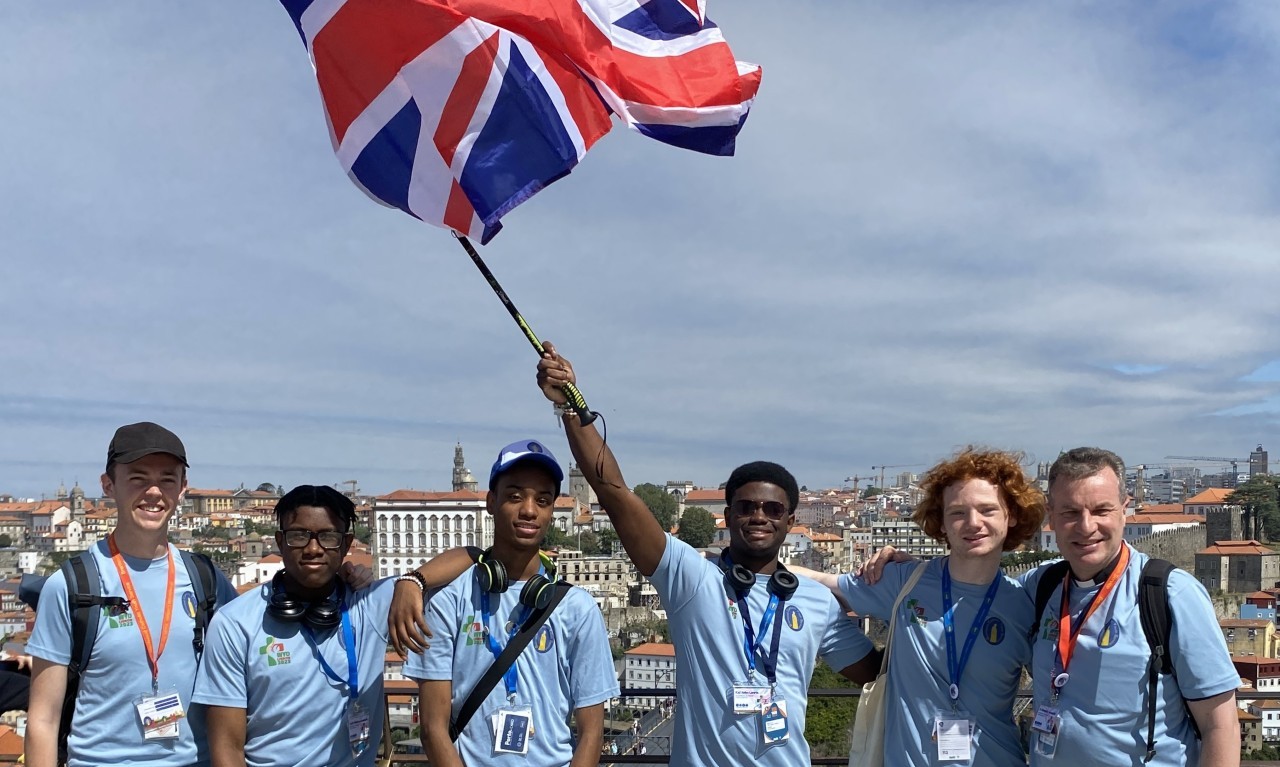 Harry Rawcliffe is school chaplain at The Campion School, Hornchurch, in Brentwood Diocese.
Harry Rawcliffe is school chaplain at The Campion School, Hornchurch, in Brentwood Diocese.
‘Sir, what do you do?’, a Year 8 student asked me as I stood on the playground in the first month of my new job. I had to pause and consider the question – not just because I had not yet had my morning coffee!
I offered something boiler-plate along the lines of ‘I help the school to live out our faith.’ True, I suppose. Yet insufficient!
In my two years here I have only become more convinced of the vital role of a dedicated chaplain in Catholic secondary schools. No job description can quite capture the role. You are a source of pastoral support and counsel for staff and students. You are a networker and catalyst for energy and initiatives already present in the school and the wider community – charity initiatives, social justice projects, wellbeing and spiritual development opportunities. You walk with individuals up the mountain of God – leading them to, and facilitating, moments of encounter in the Sacraments or on retreat.
But more fundamentally, a school chaplain is themselves. You bring your own joy, style and personal touch to the role. For some, this means using musical or artistic gifts and talents. For others, it means helping out in PE and with sports teams. For me, it is neither of those examples! Whatever it is, a school chaplain brings themself to the role, as they are. Young people can smell ‘inauthenticity’ from a mile away. When they are accompanied by people who are simply being themselves, young people feel able to be themselves too.
I find my own prayer life to be the one thing that can give me the grace I need to do my job well – because in prayer we remember who God is, and who we truly are.
What are some essential skills to be a school chaplain? Know that you are loved by God and that you are a pilgrim on the journey of life. Be the sort of person who finds joy and life in building relationships with those you are walking with on the pilgrim way (see also: The Road to Emmaus). Have a heart for sharing the love of God you have come to know. Be able to laugh at yourself and don’t be afraid to make a fool of yourself – sadly no photographic evidence exists of me on ‘sponge a teacher’ day, but many of our students can attest that I took my fair share of blows!
The school chaplain is a joyful witness of the resurrection in their community. There is a dearth of hope in the present young generation, which we need to have an answer for (we do, and his name is Jesus!) This doesn’t necessarily mean you spend every moment in school talking about Jesus. There are plenty of opportunities for that, such as assemblies and liturgies, but there is also a lot of time simply journeying through the ups and downs of everyday life. As a wise Jesuit priest and former Headteacher once advised me, ‘Spend time with them talking about the things that don’t matter. Then they will come to you to talk about the things that do matter.’
Being a school chaplain has been the greatest joy and privilege of my life so far. So much of the role is discreet, gentle, personal and – to use one of Pope Francis’ favourite words – tender. That might not be captured easily in productivity targets or exam data. But it resonates with Elijah’s encounter with God, in the gentle breeze.
I would absolutely encourage anyone who thinks they might have a heart for school chaplaincy to explore it, perhaps by finding time to shadow a chaplain already in post. The Church needs you!
To find out more about becoming a school chaplain, please contact your diocese.
Harry Rawcliffe is on the far left in the picture above, taken during events to mark World Youth Day, in Portugal, 2023.
Statement on inaccurate Sutton Trust 'Selective Comprehensives' research
Paul Barber, Catholic Education Service Director, said: “Catholic schools take in 50% more pupils from the most deprived backgrounds than the state sector.
“Just under a fifth of all pupils in Catholic statutory education meet the highest Income Deprivation Affecting Children Index (IDACI) criteria, compared to a 12.8% England average. Similarly, fewer pupils from the more affluent areas attend Catholic schools.
“Catholic schools have ten times the catchment area of other schools, and so are less reflective of their immediate locality.
“Free school meals are available for parents on benefits, but continue after household income rises above eligibility criteria. The number of Catholic school pupils on free school meals is marginally lower than the national average as many parents are ineligible due to immigration status or low-paid employment, with barriers to take-up including the complexity of applications and financial privacy concerns.”
Gender questioning children guidance for schools: CES statement
The government has today (19 December) launched a consultation on Gender questioning children: draft schools and colleges guidance.
Paul Barber, Catholic Education Service Director, said: “While some clarity from the government is welcome, Catholic schools have been responding to pupils over this issue for many years, on a case-by-case basis, with sensitivity and understanding that each individual’s needs vary. Catholic education focuses on the God-given dignity of each individual, regardless of what gender they are. We will be participating in the consultation in due course.”
Bishop Marcus' Advent message to Catholic schools
 Dear Brothers and Sisters in Christ,
Dear Brothers and Sisters in Christ,
In this liturgical season of Advent, we encounter refrains of preparation and expectation. These are experienced in the daily and Sunday readings; they culminate at Christmas in celebration of the birth of Our Lord and Saviour Jesus Christ, and the renewal of the calendar year with the Solemnity of Mary the Holy Mother of God.
Soon the school term will also give way to the holiday period. To school leaders, teachers, learning assistants, chaplains all those employed in our diocesan schools and colleges, I offer my thanks for their dedicated work and for their vocation within Catholic education.
Every year yields new challenges and those who exercise governance give so generously of their time, experience, and expertise. I wish to express my thanks therefore also to school and university governors and to trust boards, for their stewardship of the Church’s school, college and university communities and their important role in Catholic education.
Of course, parents are the first teachers of their children. The school environment in which children are taught and can flourish is founded upon all that they learn first in the family home. The parental love and encouragement which children receive in their home is reflected in the continued success of Catholic education at all levels, and for this grace we give thanks to the Lord.
May Almighty God bless you, your families and loved ones through these joyous days of Advent and Christmas and keep you safe throughout the Year of Our Lord 2024.
With the assurance of my prayers for you all, I remain,
Your servant in our Lord Jesus Christ.
Rt Rev Marcus Stock
Chair of the Catholic Education Service
Bishop of Leeds
Trustees needed for Centre for Chaplaincy in Education
 Are you committed to supporting and developing chaplaincy in education and called to give your time, experience and skill to the role of a trustee?
Are you committed to supporting and developing chaplaincy in education and called to give your time, experience and skill to the role of a trustee?
The Centre For Chaplaincy In Education is seeking new trustees.
You might be a serving or retired chaplain or church or school leader, or you may be approaching this from another perspective.
Whatever your background and interest, the CCE would be pleased to hear from you.
As well as a general trustee roles, we are also looking for someone who can take on responsibility for finance.
For an informal conversation please contact Mike Haslam, Chair of Trustees, at This email address is being protected from spambots. You need JavaScript enabled to view it.
Listen up: Catholic university hosts education podcast
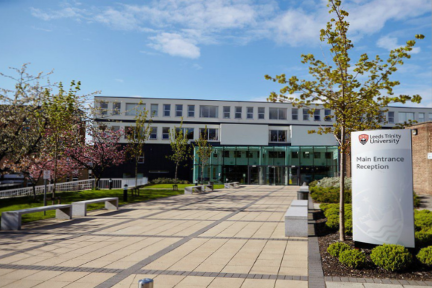 A podcast on how to return Church thought to public debate is now available, with episodes featuring contributions from a former government minister, Catholic university leaders and internationally distinguished academics.
A podcast on how to return Church thought to public debate is now available, with episodes featuring contributions from a former government minister, Catholic university leaders and internationally distinguished academics.
Beyond The Dark Clouds is hosted by Leeds Trinity University, one of four Catholic universities in England, and is centred around justice in contested issues such as law enforcement, economics, spirituality, the arts and more.
Episodes include former Labour government Trade and Industry, and Foreign and Commonwealth Affairs minister, Sir John Battle discussing the relevance of a Catholic university in the secular world. Leadership and the future of Catholic higher education is considered by Anthony McClaran, Vice-Chancellor St Mary’s University.
Professor Nicolas Vergier of the Institut Catholique de Paris and International Federation of Catholic Universities addresses the purpose of Catholic universities. Justice in policing is the theme undertaken by Professor Tobias Winright of St Patrick's Pontifical University, in Maynooth, Ireland.
Dr Ann Marie Mealey, Director of Catholic Mission at Leeds Trinity, speaks about the relevance of Catholic Social Teaching for debate in the public square and higher education sector. She explains that education for hope is the key theme for the series, in seeking to demonstrate how Catholic education and Catholic intellectual tradition can offer hope to a fractured world.
Other subjects for discussion include universities renewing a sense of purpose in students; faith and conversion in the works of Virginia Woolf; spirituality and art, as well as the need for a new narrative of faith in society.
An excellent lecture on spiritual friendship in relation to the Synod, given by internationally respected scholar and author on Christian education, Professor John Sullivan, can help listeners to consider the route to dialogue in a period of listening in the Church.
Pope Francis in his 2020 encyclical Fratelli Tutti (on fraternity and social friendship) refers to ‘dark clouds over a closed world’, which inspired the podcast’s title.
Beyond The Dark Clouds is hosted and produced by Dr Ann Marie Mealey, with help from the university’s Senior Lecturer in Journalism, Darren Harper.
Listen to Beyond The Dark Clouds on Spotify and other platforms.
Catholic schools save £500,000 by going green
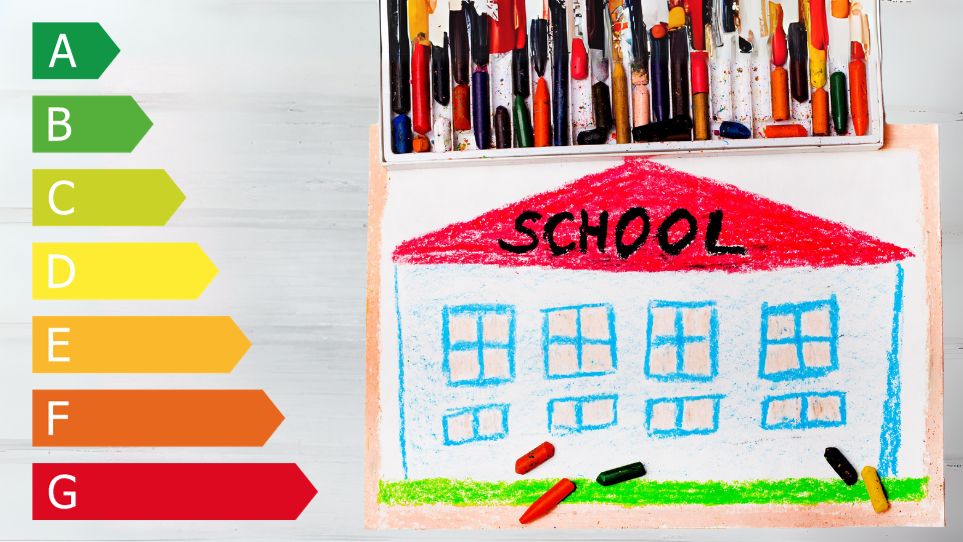 Seventy Catholic primaries and secondaries in the Archdioceses of Birmingham and Westminster have saved over £500,000 - enough to employ 30 teaching assistants - by clubbing together to commission reviews of how their premises use energy.
Seventy Catholic primaries and secondaries in the Archdioceses of Birmingham and Westminster have saved over £500,000 - enough to employ 30 teaching assistants - by clubbing together to commission reviews of how their premises use energy.
Known as Heat Decarbonisation Plans (HDPs), these detailed assessments, commissioned by the Archdioceses’ education services, revealed that upgrading building management systems could make big savings through more efficient energy use.
The schools then put in place a range of measures including improved metering for gas and electricity monitoring, LED lighting, and for schools installing solar panels these then provided up to half of their electricity.
St John Paul II Multi Academy runs nine schools in the Birmingham area, including in Walmley, Erdington and Sutton Coldfield, which have since saved £80,000, equivalent to 871,000 units of gas.
John Carroll, Facilities Manager for St John Paul II Multi Academy, said: “The prices just kept going up, we had to take control of it.
“The HDPs recommended new control panels for the boilers, and straight away we found we were saving a lot of money. By managing data for energy use it’s made a huge difference – we've cut down gas usage by 30%.
“Schools are looking at conservation now, and headteachers can talk to staff and pupils with savings for the past year and say ‘this is what you’ve done, now let’s keep it going’.”
The Archdioceses used Churchmarketplace, a not-for-profit procurement service set up by the Bishops’ Conference of England and Wales to help Catholic schools and parishes bulk-buy collectively to save on costs.
The Archdioceses then contracted energy efficiency consultancy Zeco to work out where savings could be made in schools, supported by Churchmarketplace.
Much of educational budgets are spent on products and services, such as stationery, transport, catering, computers, broadband, and printers, all of which can be made much cheaper by bulk purchases with multiple schools.
Jennifer Williamson, Director of Churchmarketplace, said: “Headteachers continue to come under huge pressure from inflation when setting budgets. By buying together with other schools real savings can be made on costs, and energy-efficient systems put in place which go on to save even more.”
Two of the key texts of Pope Francis are Laudato Si’: On Care For Our Common Home, and Laudate Deum, which emphasise the importance of protecting the environment against a culture of disposability.
Find out more about Churchmarketplace

